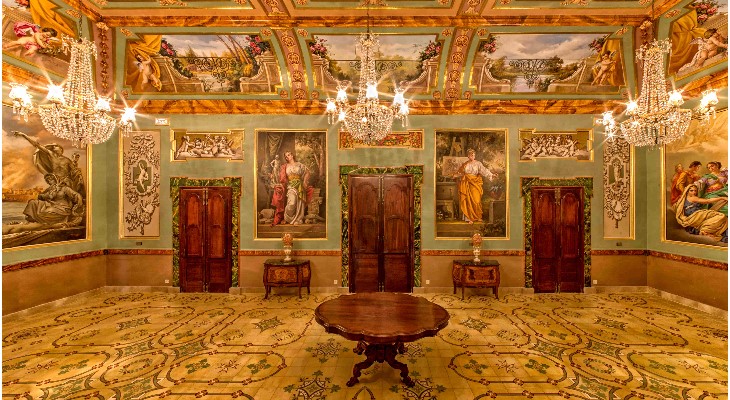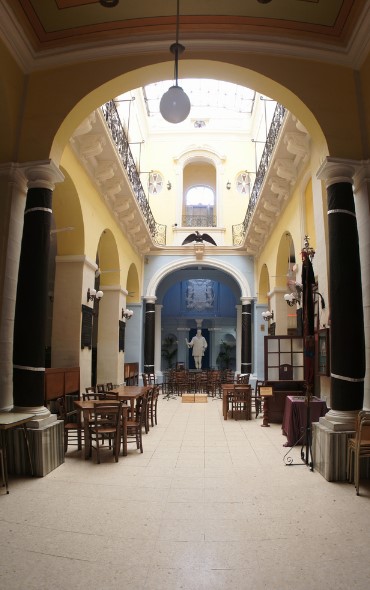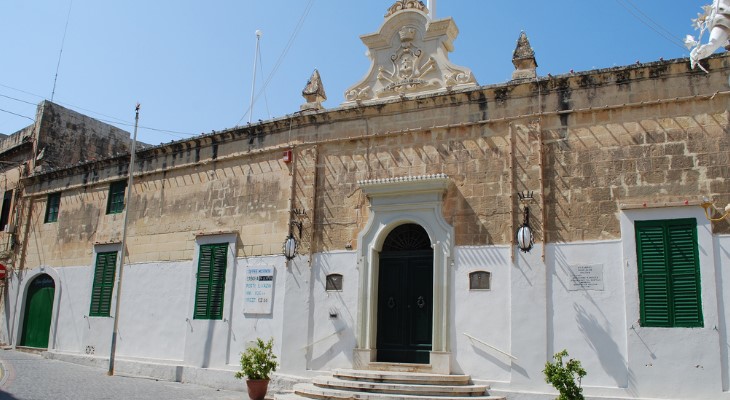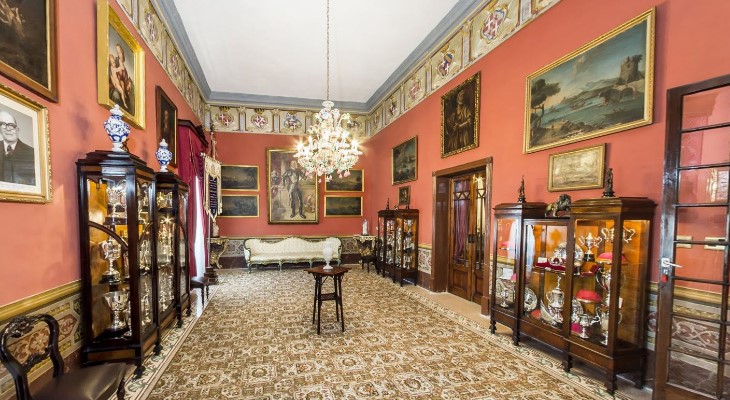The band club is an essential and unique part of local culture, but what does it really consist of and what is its role in modern Maltese society?

King George V band club, Mqabba by Chris Azzopardi
Il-kazin tal-banda, or the local band club, is one of the most typical locations in a Maltese town or village. Each locality in Malta has at least one – many have two or three just a stone’s throw away from each other, often nursing seething, decades-long rivalries. Most of the 91 band clubs around Malta and Gozo are open to the public all year round, and many have bar and restaurant areas where one can mingle with the locals, whilst helping to keep the club afloat. But what is a band club exactly, and what is its role in Maltese society nowadays?
The history of band clubs in Malta spans over 150 years. The word kazin comes from the Italian casino – not casinò, as in a gambling house, but from the root casa (house), which originally meant a small country villa, summerhouse, or social club, and later came to include other public buildings where communal and civic activities took place.

La Valette Band Club by Justin Case/Flickr
“They did start out as local social clubs – in fact, the musical element came in later, when marching bands started being formed to enhance the atmosphere of the village feast, influenced by the marching bands of the British military,” confirms Chris Briffa, press officer of the Ghaqda Kazini tal-Banda, an organisation which represents the interests of band clubs all over Malta and Gozo. “They were also often epicentres for social movements and change; for example, the Sette Giugno uprising, widely considered to be the first step in Malta’s quest for independence, was plotted within a network of band clubs.”
In fact, the names of band clubs to this day reflect whether the clubs were more historically pro-Italian or pro-British – the ones that supported colonial rule are usually named after British personages such as King George V, Queen Victoria or the Duke of Connaught.
Mr Briffa explains that while they’re no longer hotbeds for political activism, nowadays band clubs serve a triple role. “First of all, they are free music schools, providing their students with tuition and instruments at no cost. Second, they are the key to organising events within the community, from the village feast to summer music festivals. Third, they serve as a breeding ground for culture and creativity, teaching their young members valuable skills.”
Indeed, at a band club, young people can master a whole gamut of skills, from the musical training that underpins the purpose of a band club, to event organisation and management, to the highly precise science of pyrotechnics that leads to the beautiful firework displays seen at village feasts all over the island.

St Gabriel band club, Balzan - www.stgabrielbandclub.com
“What’s a Maltese summer without festi?” Chris exclaims. “They’re among the few summer events that are open and free for all. For the past three years, we’ve even been trying to get them recognised as part of the UNESCO’s list of Intangible Cultural Heritage of Humanity. But at the same time, there’s been a drop in participation at the community level, in the run-up to the festa. People find it difficult to set aside a number of hours from their week to volunteer.”
One person who dedicates a lot of his free time to volunteering at his local band club is Neville Muscat, secretary of the L’Isle Adam Band Club in Rabat. Established in 1860, it’s one of the oldest clubs in Malta. We meet in the band club’s majestic premises in charming St Paul Street, Palazzo Xara, purchased by the band club in 1951.

L'Isle Adam Band Club, Rabat - Picture Perfect Malta
“The club serves as a local landmark, as well as a space for family members and old friends to congregate, especially during feast days and special occasions where former residents come back to their hometown. Often, people will meet up with people they grew up with, sometimes people they haven’t seen in years, and they will choose the każin as the place to do so.”
L’Isle Adam Band is considered to be one of Malta’s finest of its kind. Its main outing is during the feast of St Joseph on 19th March, one of the few feasts in Malta that takes place in winter. However, the band also takes part in one of Malta’s oldest and most solemn Good Friday processions in Rabat, hosts an Imnarja concert on 29th June, and participates in various feasts and celebrations, including the opening ceremony of Valletta 2018. It has also played overseas in a number of countries, ranging from Italy to the Holy Land.
"Many of our bandisti have gone on to lead successful careers as professional musicians; one of them is a member of the Malta Philharmonic Orchestra!"
Mr Muscat, who has been secretary of the committee for more than 22 years and also plays the saxophone in the band, remembers being part of its youth section. “There’s a level of commitment that being a member of a club like this requires. But for lots of musicians, being part of a band club can also be a stepping stone towards a career in music. Many of our bandisti have gone on to lead successful careers as professional musicians; one of them is a member of the Malta Philharmonic Orchestra!”
Despite the challenges that the band club faces in the modern age, L’Isle Adam Band Club is still thriving, and Mr Muscat thinks that part of it is due to its dedication to custom and tradition. “So far, we’ve managed to retain certain traditions that other clubs may have lost. The band always plays in smart, full uniform, and almost all the marches we play during the feast were composed by locals. No matter which streets the band passes through during the festa, the residents will open their doors and offer the musicians and other members of the band club a festive drink. That’s something you don’t see very often these days.”
Good Friday programme in Rabat
23rd March – 6pm: Procession dedicated to Our Lady of Sorrows starting from the Our Lady of Jesus Church.
25th March – 7pm: A concert of sacred music, with the participation of the L’Isle Adam Band at Our Lady of Jesus Church (free entrance)
30th March – 5.30pm: Good Friday procession with the participation of the L’Isle Adam Band and up to 500 people in full Biblical costume.
During Holy Week, Palazzo Xara will host various exhibitions related to Good Friday and Easter, including a full array of religious costumes.